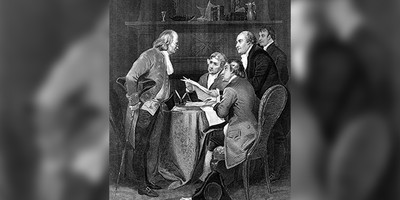The 2020 Abraham Accords represent the most significant diplomatic achievement of the first Trump administration. Normalizing ties between Israel and Muslim-majority nations like the UAE, Bahrain, Morocco, and Sudan redefined what was possible in the Middle East, breaking long-standing barriers and setting the stage for broader regional cooperation.
But under Biden, that process has stalled. The region now lies in flux. Expanding the accords to include other regional powers like Saudi Arabia will be key to securing Israel’s long-term security interests. But the fastest path to stabilizing the region and strengthening Israel’s position lies through Israeli-Turkish rapprochement.
Though the first Muslim nation to formally recognize Israeli statehood, relations nosedived during the Gaza war. Turkish President Recep Tayyip Erdogan has been a staunch supporter of Palestine, accused Israel of committing genocide, and offered safe harbor for Hamas’ political leadership since their expulsion from Qatar. However, Erdogan’s support is more pragmatic than principled. In the past, he has used the issue as leverage to further Turkey’s regional goals and he’s likely to do so again if the right deal is on the table.
Turkey’s influence in Syria raises the stakes. By backing the rebels that overthrew Bashar al-Assad – formerly propped up by Russia and Israel’s existential enemy Iran – it has become the most influential foreign player on Israel’s northern border. Avoiding conflict between Turkish backed forces and Israel, who have seized strategic locations in the wake of Assad’s fall, will be essential to avoiding a wider conflagration.
Recommended
Israeli-Turkish rapprochement offers a dilution in Turkey’s support for Hamas, while securing one of the many hostile borders Israel faces on its opposite flank. It also raises the prospect of cooperation to contain Iran’s destabilizing actions in the region, with whom Turkey is no friend.
There is a deal to be done. The biggest threat in Erdogan’s mind is Kurdish terror in Turkey – the Kurdistan Workers' Party (PKK). Turkish involvement in Syria is predicated in containing Kurdish militia YPG (People's Protection Units). To Ankara, and with some justification, they are one and the same with the PKK. Yet the US partnered with the YPG against ISIS, putting it at odds with Turkey. The fact that the PKK is designated by Washington as a terror organization only deepened its grievance.
Trump has no great affinity for the Kurds, having curtailed US support during his first administration. Moreover, in a post-Assad Syria, Turkish-backed groups – who have spent years battling ISIS – will be better positioned to manage the threat.
However, in this febrile mosaic, trust remains low among all parties. A US brokered Israeli-Turkish rapprochement would benefit from a co-mediation by Azerbaijan, a nation to the North, that retains the trust of both nations. The Caspian nation has already been acting in a similar capacity. Since the fall of Assad, it has been discreetly mediating between Turkey and Israel. Its role as a communication back-channel has been critical to avoiding any accidental confrontations in Syria.
Azerbaijan is uniquely positioned to play a co-mediating role. Few are more trusted by Ankara than Baku. The two see themselves as brotherly nations in the wider Turkic world. Their relationship has been embedded over the course of several centuries through shared cultural ties, which have been further strengthened by increased economic integration and military cooperation since Azerbaijan regained its independence following the collapse of the Soviet Union. The bond between the two countries goes beyond mere diplomacy and in Baku it’s common to hear it described in terms of “one nation, two states”.
At the same time, Azerbaijan has cultivated a close partnership with Israel in recent years. The former supplies the latter with 40 percent of its oil needs, while Israeli-made drones were critical in helping Baku win the Second Karabakh War and end nearly three decades of military occupation by Armenian forces. The two nations also share a common foe in Iran and Azerbaijan solidified its burgeoning relationship with Israel by opening an embassy in Tel-Aviv in 2022, becoming the first Shia-majority country to do so.
It appears that Trump has been laying the groundwork for wider Israeli-Turkish talks. In recent weeks, he has been effusive in his praise of Erdogan, complimenting him on the role he played in breaking the deadlock in the long-stalled Syrian War.
For all the complexity, the ingredients for a deal are present: shared threats, mutual interests, and a willing mediator in Azerbaijan. If successful, it would not only revive the momentum of the Abraham Accords but also create a new axis of stability linking Turkey, Israel, and Azerbaijan. In a region where hard power and grand strategy often define success, this could be Trump’s second landmark legacy in the Middle East.

























Join the conversation as a VIP Member